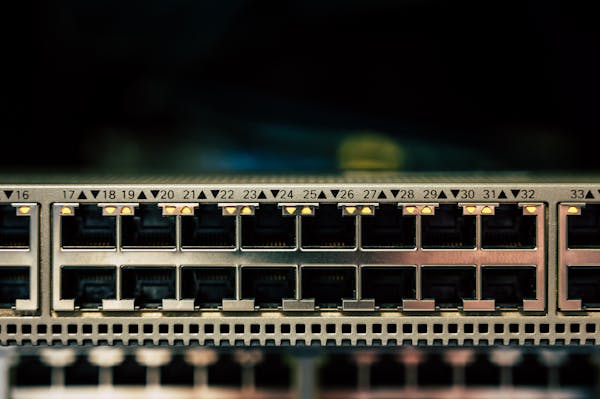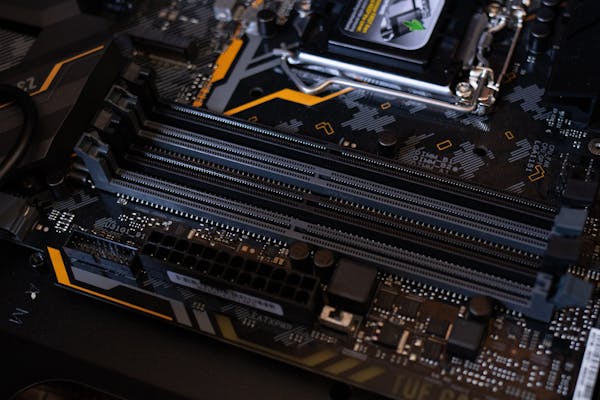Source article: https://heyzine.com/ (4G rotating proxy mobile for sale)

Understanding 4G Rotating Proxies
With the increasing need for online anonymity, mobile 4G proxies have become essential for secure and anonymous browsing.
What Are 4G Rotating Proxies?
4G rotating proxies leverage cellular data connections to rotate IP addresses to users. Unlike static proxies, they rotate IPs after set intervals, improving security.
How Do They Work?
When connected, the proxy server assigns a mobile IP. These IPs are switched periodically, hindering surveillance.
Why Opt for 4G Rotating Proxies
- Increased Security: Dynamic IP rotation obscures user identity.
- Accessing Region-Locked Content: Changing IPs facilitate unrestricted browsing.
- Lowered Detection Rates: Frequent IP changes circumvent anti-bot measures.
Use Cases for Mobile Proxies
- Information Gathering: Rotating IPs maintain access to target sites.proxies reduce account bans.
- Ad Verification: Changing IPs validate ad placements.
- o Consider}
Before selecting a provider, consider:
- Diversity of IP Addresses: A larger pool offers better rotation.
- IP Change Intervals: Determine if the service has fixed durations.
- Location Options: Access to multiple regions supports diverse tasks.
Potential Challenges
- Cost Implications: 4G proxies may be pricier compared to other types.
- Network Reliability: Mobile networks may affect consistency.
- Regulatory Concerns: Ensure usage respects terms of service.
Summing Up
Mobile 4G proxies offer unparalleled anonymity, establishing their importance in modern internet usage.
Delving into the Inner Workings of Mobile 4G Proxies
Within the sphere of online anonymity, mobile 4G proxies have emerged as pivotal tools for conducting secure web activities.
Defining 4G Rotating Proxies
4G rotating proxies employ mobile networks to assign dynamic IP addresses to users. Unlike static proxies, they offer dynamic IP rotation, enhancing anonymity.
How Do They Work?
Upon connection, the proxy server assigns a mobile IP. These IPs rotate based on time or requests, making tracking difficult.
Why Opt for 4G Rotating Proxies
- Enhanced Anonymity: Dynamic IP rotation obscures user identity.
- Bypassing Geo-Restrictions: Changing IPs allow access to restricted content.
- Minimized Blocking Risks: Frequent IP changes circumvent anti-bot measures.
Applications of 4G Rotating Proxies
- Web Scraping: Rotating IPs maintain access to target sites.
- Automated Posting: Dynamic proxies reduce account bans.
- Competitor Analysis: Changing IPs validate ad placements.
Factors to Consider
When opting for a 4G rotating proxy, consider:
- Number of Available IPs: A larger pool enhances anonymity.
- Switching Mechanisms: Determine if the service offers customizable intervals.
- Location Options: Access to multiple regions broadens usability.
Potential Challenges
- Pricing Structures: 4G proxies can impact budgets compared to other types.
- Connection Stability: Mobile networks may affect consistency.
- Ethical and Legal Considerations: Ensure usage respects terms of service.
Summing Up
4G rotating proxies offer unparalleled anonymity, positioning them as essential tools in modern internet usage.
The evolving internet ecosystem, maintaining online privacy and get around limitations has become more critical than ever. Businesses, marketers, and developers often rely on proxies to change their IPs. Among these, mobile 4G proxies have become the go-to solution.
How do they stack up against other alternatives like residential proxies? Let’s dive deep.
== What is a 4G Rotating Proxy?
A 4G mobile proxy is a proxy that routes internet traffic through a real mobile device. These proxies rotate IPs at custom timeframes or upon request, emulating human behavior and eliminating the risk of bans or blocks.
== Main Proxy Types
Let’s look at the key proxy types before comparing:
1. **Datacenter Proxies**
– High-speed and cheap, but easily flagged.
2. **Residential Proxies**
– Use IPs assigned to real homes. More legit, but slower and costlier.
3. **4G Mobile Proxies**
– Use real SIMs on LTE networks. Best for scraping, bots, social media.
4. **SOCKS5 Proxies**
– Protocol-based, flexible, used for various apps, not just HTTP.
== Comparison Table
| Feature | 4G Rotating Proxies | Datacenter Proxies | Residential Proxies | SOCKS5 Proxies |
|————————|———————|———————|———————|—————-|
| IP Source | Mobile Network (SIM)| Data Centers | Home IPs | Varies |
| Rotation | Yes (Frequent) | Sometimes | Optional | Manual |
| Ban Resistance | High | Low | Medium | Depends |
| Speed | Medium | High | Low-Medium | High |
| Price | High | Low | Medium | Low-Medium |
| Target Use | Social, Ads, Bots | General Scraping | E-commerce, Research| General |
| Block Detection | Low | High | Medium | Medium |
== Technical Advantages of 4G Rotating Proxies
What gives mobile proxies their edge?
– **Real Device Trust**: Websites trust mobile IPs more than others due to carrier NAT and wide user pools.
– **Shared Reputation**: IPs are shared across many users, making banning a single user risky.
– **Geo-targeted Mobile Carriers**: Rotate between networks in real U.S. cities or countries.
– **Dynamic Rotation**: Can rotate every few minutes or after each request.
– **Bypasses Captchas**: Mobile IPs are less likely to trigger captchas or challenge verifications.
== Where 4G Proxies Win
Here’s the truth— if you’re doing social media automation, nothing works better than a solid 4G proxy.
– Craigslist blocks data center IPs.
– Web scraping? You’ll face fewer issues.
– Ads management across banned zones? Done.
== Where They Fall Short
– **Cost**: They’re way more expensive.
– **Speed**: Slower than static datacenter options.
– **Limited Threads**: Some providers limit concurrent usage.
== SOCKS5 vs 4G: Protocol vs Behavior
If you need raw protocol-level control, SOCKS5 is your friend. But they don’t have native rotation.

| Attribute | 4G Proxy | SOCKS5 Proxy |
|———————|——————–|——————–|
| Protocol Type | HTTP/HTTPS | SOCKS5 (All apps) |
| Rotation | Yes | Manual |
| IP Trust Level | Very High | Medium |
| Use Cases | Social, Ads, Bots | Torrenting, Apps |
== Use Cases Side-by-Side
**4G Rotating Proxies:**
– Social Media Management
– Mobile Ad Verification
– SEO Scraping
– Sneaker Bots / E-com Testing
– Marketplace Automation
**Datacenter Proxies:**
– High-volume scraping (non-sensitive)
– Speed-demanding tasks
– Price-conscious campaigns
**Residential Proxies:**
– E-com price intelligence
– Research tools
– CAPTCHA-heavy targets
**SOCKS5 Proxies:**
– Application-level traffic routing
– Anonymity over torrents
– Bypassing firewalls
== How to Choose the Right One?
Each proxy has a time and place. Here’s how to choose:
– Need speed? Go datacenter.
– Need trust and stealth? Go 4G mobile.
– Need app-level routing? Go SOCKS5.
– Need wide IP pools without rotation? Try residential.
== Future of 4G Rotating Proxies
With AI detection systems growing smarter, only mobile IPs are keeping up. We’re seeing:
– 5G proxy rollouts in testing
– Smarter rotation algorithms
– Integration with automation platforms like Jarvee, NextPost, Puppeteer
== Final Verdict
If you want the closest thing to human, LTE proxies are your best bet. For any campaign that’s stealth-heavy or bot-powered, it’s worth the investment.
== Spintax Conclusion
If you’re testing products or scraping competitors, investing in the right proxy is a make-or-break decision.
They come with a premium, but the benefits outweigh the cost.
https://www.fortinet.com/resources/cyberglossary/proxy-server
https://en.wikipedia.org/wiki/Proxy_server
https://support.microsoft.com/en-us/windows/use-a-proxy-server-in-windows-03096c53-0554-4ffe-b6ab-8b1deee8dae1
https://www.reddit.com/r/explainlikeimfive/comments/1dfgepb/eli5_what_is_a_proxy_server_and_why_would_i_as_an/
https://surfshark.com/blog/proxy-server
